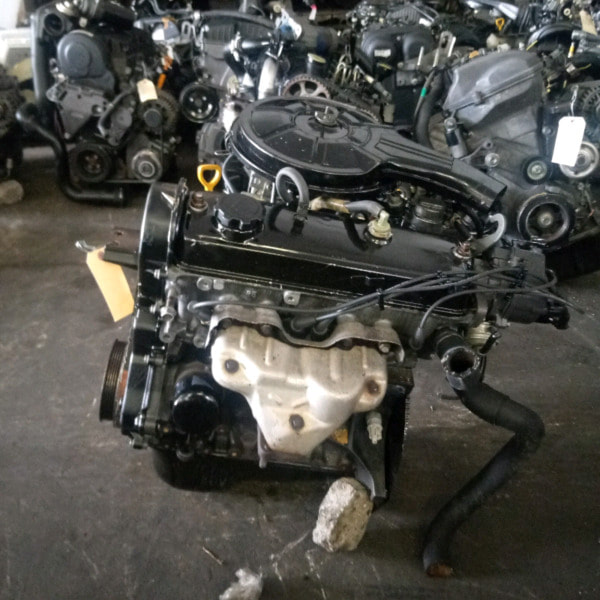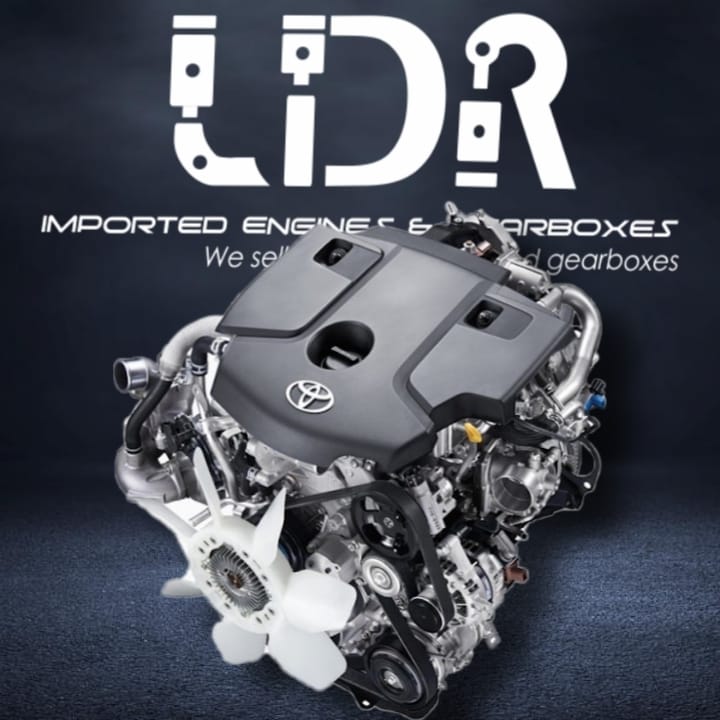Discover Reliable Toyota Tazz Engine for Sale: Auto Components Depot
Discover Reliable Toyota Tazz Engine for Sale: Auto Components Depot
Blog Article
Engine Buying Expert Tips on Selecting the Right Engine for Your Particular Demands
Selecting the best engine for your details demands involves a complicated interaction of elements that exceed plain horse power figures. From power output to sustain effectiveness, the decision-making process can be intimidating. Recognizing the subtleties of engine kinds, sizes, and their compatibility with your lorry is important. Nevertheless, there are expert suggestions that can help navigate this surface with self-confidence. By diving into the complexities of power versus efficiency, evaluating gas rankings, and budgeting for long-lasting expenses, one can truly optimize their engine option.
Power Vs. Performance: Locating the Equilibrium

When selecting an engine, it is crucial to strike a balance between power and efficiency to meet your particular demands effectively. Power describes the engine's ability to create energy for propulsion, determining variables like velocity, hauling capacity, and total performance (Toyota Tazz Engine For Sale). On the various other hand, effectiveness associates to how well the engine makes use of fuel to generate power, impacting variables such as fuel economic climate and environmental kindness
Achieving the appropriate balance in between power and efficiency is important since an engine that is also powerful may consume extreme gas, resulting in higher operating expense and unnecessary strain on the setting. Alternatively, an engine that focuses on performance over power might cause sluggish efficiency, particularly in demanding circumstances like lugging heavy loads or driving uphill.
To make an informed choice, think about variables such as your normal driving conditions, the designated usage of the vehicle, and your individual choices. By examining your demands and top priorities, you can select an engine that strikes the best equilibrium between power and effectiveness, making certain optimal performance while decreasing ecological impact and operating expense.
Recognizing Engine Dimension and Type

Typical engine types include inline engines, V engines, and rotating engines, each with its one-of-a-kind benefits and disadvantages. Comprehending the interplay between engine dimension and kind is important in selecting an engine that aligns with your specific needs and priorities, whether it be power, efficiency, or a balance of both.
Consider Your Car's Requirements
If you are looking for an engine for a sturdy truck that will be utilized for towing, you will need a powerful engine with high torque capabilities. On the other hand, if you are selecting an engine for a portable auto mainly made use of for city commuting, fuel effectiveness might be an extra critical element to think about.

Evaluating Fuel Performance Rankings
Evaluating fuel efficiency scores is a critical facet of picking the appropriate engine for your lorry, ensuring cost savings and environmental sustainability. Fuel effectiveness scores, usually gauged in miles per gallon (MPG) for fuel engines or kilowatt-hours per 100 miles (kWh/100 miles) for electrical engines, indicate how much a vehicle can travel on a certain quantity of gas or electricity. Higher MPG or lower kWh/100 miles worths represent more effective engines, equating to decreased fuel costs and reduced carbon exhausts.
When reviewing gas effectiveness scores, consider your driving practices and demands. A very fuel-efficient engine can result in significant financial savings over time if you commute long distances daily. In addition, compare various engine choices within the very same automobile course to determine one of the most cost-effective selection. Elements such as engine dimension, weight, aerodynamics, and crossbreed or electric capacities can all influence gas efficiency.
Budgeting for Long-Term Expenses
Strategically preparing for lasting expenses is essential when choosing an engine, ensuring monetary sustainability over the automobile's life-span. While the initial purchase rate of an engine is a considerable aspect, it is crucial important source to think about the lasting prices connected with maintenance, fixings, and fuel consumption. Choosing an extra fuel-efficient engine might have a higher in advance expense yet can cause considerable cost savings with time. Normal more info here maintenance, such as oil changes, filter replacements, and tune-ups, is necessary to maintain the engine running efficiently and efficiently, minimizing the threat of costly repair services down the line.
In addition, looking into the availability and cost of substitute components for the picked engine is important in budget plan preparation. Engines with affordable and conveniently available parts can dramatically affect long-lasting upkeep costs. Additionally, taking into consideration the engine's durability and anticipated life expectancy can help prevent unexpected substitute expenses in the future. By carefully budgeting for these long-lasting expenses and factoring them right into the decision-making process, people can select an engine that not just satisfies their prompt requirements but likewise remains cost-efficient throughout its life expectancy.
Final Thought
Finally, selecting the appropriate engine for your particular requirements calls for balancing power and effectiveness, recognizing engine size and type, considering your automobile's requirements, examining gas efficiency scores, and budgeting for long-lasting prices. By carefully considering these aspects, you can ensure that you pick an engine that fulfills your demands and offers optimum efficiency for your car.
To additionally improve the selection process of an engine that strikes the ideal equilibrium in between power and effectiveness, it is crucial to delve right into the intricacies of understanding engine size and type. Engine size refers to the overall quantity of air and fuel that can be pushed via the engine cyndrical tubes. Usual engine types include inline engines, V engines, and page rotating engines, each with its unique advantages and drawbacks. Recognizing the interaction in between engine dimension and kind is important in picking an engine that aligns with your specific needs and priorities, whether it be power, performance, or an equilibrium of both.
Gas effectiveness scores, normally determined in miles per gallon (MPG) for gasoline engines or kilowatt-hours per 100 miles (kWh/100 miles) for electric engines, show just how far a car can travel on a details quantity of fuel or electrical power.
Report this page